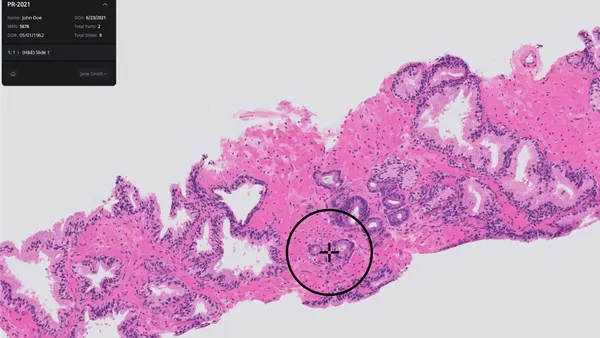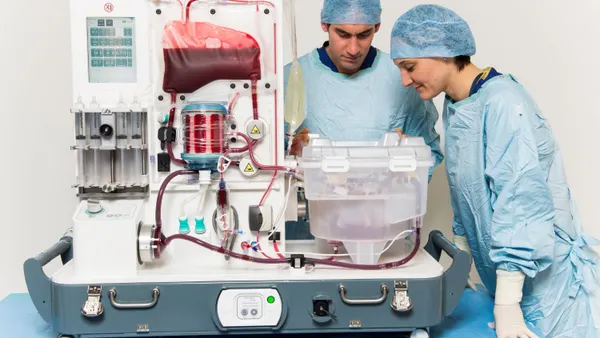Dive Brief:
-
Boston Scientific has exercised its option to acquire Millipede and its experimental treatment for severe mitral regurgitation (MR) for $325 million upfront.
-
The deal, which comes a year after Boston Scientific took a $90 million stake in Millipede, will give the medtech giant control of a device that could serve the millions of people globally who have MR but are ineligible for open-heart surgery.
-
Striking the deal continues Boston Scientific's streak of acquisitions and positions it to fight for a piece of the hotly-tipped MR market.
Dive Insight:
Boston Scientific found time to squeeze one more deal into its jam-packed 2018. Having seemingly capped off last year's series of takeovers with a $4.2 billion move for BTG, Boston Scientific disclosed the exercising of its option to buy Millipede days before the end of 2018. Boston Scientific gained the option to buy Millipede for $325 million and a $125 million commercial milestone a year ago, when it bought a $90 million stake in the startup.
The latest outlay will enable Boston Scientific to add the IRIS Transcatheter Annuloplasty Ring System to its structural heart portfolio. Millipede designed the IRIS system for use in patients with functional MR, a condition associated with blood flowing the wrong way through the heart.
Patients with functional MR tend to be older people who suffer from comorbidities, making them poor candidates for open-heart surgery. The rise of functional MR has created a sizable market for less-invasive treatments that improve on the survival rate achieved by existing procedures. Millipede thinks more than 1.6 million people in the U.S. may be eligible for treatment with its device.
The device is a complete, semi-rigid annuloplasty ring that is delivered via the femoral vein to repair the affected valve. Once in place, the device is designed to reduce the size of the dilated mitral annulus and thereby stop blood from flowing backwards through the leaky heart valve.
Boston Scientific thinks the transcatheter mitral repair and replacement market will be valued at $1 billion by 2021. Having seen Millipede take IRIS through a first-in-human trial, Boston Scientific wants to position the device to capture a piece of the growing market but it will face competition from some familiar faces.
Abbott's MitraClip is used to repair the valves of patients with functional MR in some markets but failed a clinical trial in the population last year. Edwards has developed its Cardioband mitral system for the repair of functional MR, too.
In recent years, Abbott, Edwards and Medtronic have bolstered their presence in the MR field with substantial takeovers of Tendyne, CardiAQ Valve Technologies and Twelve, respectively. Those deals all covered MR replacement devices. Boston Scientific thinks repair procedures will account for the majority of the MR market in 2021.












